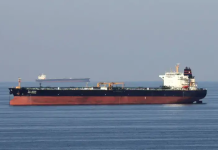ISLAMABAD, APR 8: /DNA/ – Business leader and former President of the Islamabad Chamber of Commerce and Industry (ICCI), Dr. Shahid Rasheed Butt, stated on Tuesday that Trump tariffs are reshaping global commerce.
He noted that while much attention has been paid to how these policies affected the US, China, and the EU, the impact on poor nations has been largely overlooked.
In a statement issued here today, Shahid Rasheed Butt explained that emerging global trade dynamics are profoundly influencing low-income countries.
He remarked that Trump’s aggressive tariffs, particularly against China, disrupt established supply chains, creating significant challenges.
The business leader pointed out that aggressive trade policies have produced considerable ripple effects worldwide. Both direct and indirect consequences have lasting impacts on economies, development prospects, and social stability in many developing countries.
Trump’s new tariffs have led to significant declines in global stock markets, including those in Europe and Asia. Stock markets serve as platforms where firms sell shares in their businesses, reflecting evaluations of global company worth and future profit expectations.
Now, many multinational companies are seeking to relocate their manufacturing operations. While this might initially appear to present opportunities for economic growth in these regions, the reality is more complex.
Poorer nations, many of which lack the infrastructure to accommodate rapid industrial expansion, will face overwhelming pressures on their ports, roads, and public services.
Furthermore, the unpredictability of trade tensions has created an unstable environment for long-term investments. Countries heavily reliant on exports, such as those producing textiles or electronic components, will face fluctuating demand and unreliable supply chain dynamics, undermining job security and growth prospects.
Shahid Rasheed Butt said that Trump’s policies, while framed as strategy to boost the US economy, have sent shockwaves across the developing world.
Poorer nations have grappled with new economic and social challenges, including trade instability, reduced foreign aid, weakened climate action, and disrupted migration flows.
As the global community looks ahead, these experiences highlight the importance of international cooperation and the far-reaching impacts of US policy decisions on the world’s most vulnerable populations.

















